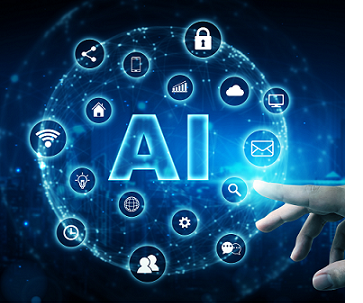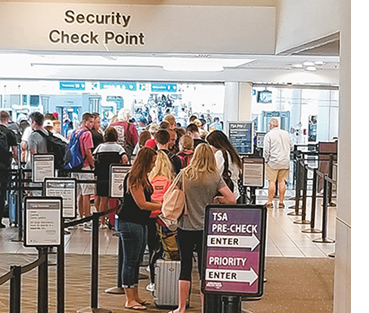How Artificial Intelligence is Revolutionizing Personal Security and Self-Defense
 Artificial intelligence (AI) is rapidly transforming various aspects of our lives, including personal security and self-defense. With the increasing threats to personal safety, AI technology has emerged as a valuable tool for enhancing individual protection. This article explores how AI can assist in ensuring your safety and provide you with effective means of self-defense.
Artificial intelligence (AI) is rapidly transforming various aspects of our lives, including personal security and self-defense. With the increasing threats to personal safety, AI technology has emerged as a valuable tool for enhancing individual protection. This article explores how AI can assist in ensuring your safety and provide you with effective means of self-defense.
Understanding Personal Security Threats
Personal security threats come in many forms, such as physical attacks, cyberstalking, identity theft, and online harassment. These risks are not only limited to individuals but also extend to businesses and organizations. To mitigate these threats effectively, it's essential to understand their nature and potential impact on one's life or business operations. By leveraging AI capabilities, we can better anticipate, detect, respond to, and prevent these threats from causing harm.
Leveraging AI for Enhanced Personal Security
- Predictive Analytics: AI algorithms can analyze large datasets containing historical crime statistics and patterns to predict when and where crimes might occur. Law enforcement agencies use this information to allocate resources efficiently and increase patrols in high-risk areas. As an individual, you can access similar data through applications that notify you of nearby criminal activities or unsafe environments.
- Smart Surveillance Systems: Advanced video analytics powered by AI enables real-time monitoring and analysis of footage captured by cameras installed at homes, workplaces, public spaces, and other locations. These systems can identify suspicious behavior, track objects or people, and alert authorities if necessary. Moreover, facial recognition technology integrated into surveillance systems helps law enforcement quickly locate suspects and monitor known offenders.
- Intrusion Detection Systems: AI-driven intrusion detection systems can learn normal activity patterns within a specific environment and flag any unusual events. For instance, smart home security solutions may recognize family members' movements and sounds and send alerts when anomalous activities are detected. Similarly, corporate networks employ AI-powered tools to protect sensitive information from unauthorized access, malware, and phishing attempts.
- Wearable Devices: Modern wearables like smartwatches and fitness trackers incorporate AI features that allow them to assess user health status, detect falls, and trigger emergency calls automatically. Additionally, some devices offer panic buttons or silent alarms that discreetly signal distress to predefined contacts without attracting unwanted attention.
- Virtual Assistants: Voice-activated virtual assistants equipped with AI capabilities can act as personal guards by responding to verbal commands, making emergency calls, and providing critical instructions during threatening situations. Furthermore, they can be programmed to control connected smart home devices, enabling users to simulate occupancy or activate deterrent measures remotely.
- Cybersecurity Solutions: AI plays a crucial role in protecting digital identities, financial transactions, and confidential data against cybercriminals. Machine learning algorithms continuously adapt to new threat vectors, identifying and neutralizing malicious software, spam emails, and phishing scams before they cause damage.
- Self-Defense Training: AI-enhanced training platforms enable individuals to practice self-defense techniques using virtual reality simulations. Users can engage in realistic scenarios tailored to their skill level, receive instant feedback on performance, and measure progress over time.
- Autonomous Vehicles: Self-driving cars incorporating advanced AI technologies promise improved road safety due to reduced human error. They can navigate complex traffic conditions, avoid collisions, and react swiftly to unexpected obstacles, thereby minimizing accidents and creating a safer driving experience.
- Social Media Monitoring: AI-powered social media tracking tools help individuals and organizations monitor online conversations related to their brand, products, or services. By analyzing text, images, and videos posted across multiple platforms, these systems can detect potential threats, misinformation campaigns, and reputation-damaging content early on, allowing timely intervention.
In conclusion, artificial intelligence significantly contributes to enhancing personal security and self-defense in numerous ways. From predicting and preventing crimes to offering real-time assistance during emergencies, AI-driven solutions empower individuals and organizations alike to safeguard themselves against various threats. However, while embracing these advancements, it's equally important to remain vigilant and aware of privacy concerns associated with AI technologies.




























